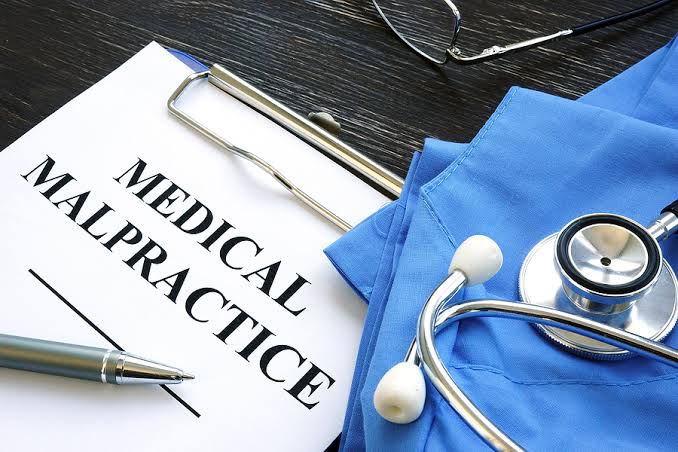Understanding Medical Malpractice: When to Contact an Attorney

Key Takeaways:
- Medical malpractice occurs when a healthcare provider deviates from standard care, causing injury to a patient.
- Common types of medical malpractice include misdiagnosis, surgical errors, and medication mistakes.
- Contacting a medical malpractice attorney is essential for navigating the legal process and understanding your rights.
- Timely legal action is crucial as medical malpractice claims are subject to statutes of limitations.
- Documenting evidence and consulting an expert witness can strengthen your case.
Table of Contents:
- Introduction to Medical Malpractice
- When to Contact an Attorney
- Types of Medical Malpractice
- Steps to Take If You Suspect Medical Malpractice
- Choosing the Right Attorney
- Preparing for Your Consultation
- Conclusion
Introduction to Medical Malpractice
Medical malpractice occurs when a healthcare provider deviates from the accepted standard of care, resulting in injury or harm to a patient. This deviation could occur due to negligence, omission, or incompetence. Each year, numerous patients experience adverse outcomes due to medical errors, underlining the importance of understanding when and how to seek legal assistance.
Whether it’s a missed diagnosis, surgical error, or improper medication, victims of medical malpractice often suffer significant physical, emotional, and financial repercussions. Understanding the basics of medical malpractice can help you recognize when to seek expert legal advice.
When to Contact an Attorney
If you suspect that you or a loved one has been a victim of medical malpractice, it’s essential to contact a medical malpractice attorney Rockford as soon as possible. An experienced attorney can guide you through the complex legal landscape, helping you understand your rights and potential legal remedies.
Engaging an attorney early in the process is crucial for several reasons. First, medical malpractice claims are subject to statutes of limitations, which vary by state. This means you have a limited window to file a claim. Additionally, gathering evidence and consulting with expert witnesses takes time, and delays can weaken your case.
Types of Medical Malpractice
Misdiagnosis
Misdiagnosis or delayed diagnosis is a common form of medical malpractice that can have severe consequences for patients. For example, a patient with symptoms of a heart attack might be misdiagnosed with anxiety, delaying critical treatment. Misdiagnoses occur when healthcare providers fail to recognize or correctly identify a condition due to insufficient examination, lack of necessary tests, or oversight.
Surgical Errors
Surgical errors encompass a range of mistakes made during surgery, from wrong-site surgery to leaving instruments inside the patient’s body. These errors can lead to additional surgeries, infections, and prolonged recovery. Surgical teams must adhere to stringent protocols and checklists to minimize these risks. Despite these measures, errors still occur, underscoring the need for accountability and legal recourse.
Medication Mistakes
Medication errors, including incorrect dosages, wrong medications, or harmful drug interactions, can have disastrous effects. These mistakes often arise from poor communication among medical staff, inaccurate patient records, or pharmacy errors. Due to these errors, patients may suffer from adverse reactions or lack the benefits of proper treatment.
Birth Injuries
Birth injuries are particularly devastating and can result from improper prenatal care or errors during delivery. These injuries might include conditions like cerebral palsy, Erb’s palsy, or brain damage due to oxygen deprivation. Birth injuries can lead to lifelong disabilities, making timely and appropriate legal action crucial for affected families.
Steps to Take If You Suspect Medical Malpractice
If you believe you’re a victim of medical malpractice, here are crucial steps to follow:
Document Everything
Maintain comprehensive records of all medical treatments, consultations, and communications with healthcare providers. Documenting your experience helps establish a clear timeline and supports your attorney in building a solid case.
Consult an Expert Witness
Medical malpractice cases often require testimony from expert witnesses to establish that the standard of care was breached. Your attorney will help identify and consult with experts in Rockford who can provide credible opinions on your case.
Request Medical Records
Obtain copies of your medical records as soon as possible. These records are crucial for evaluating the details of your treatment and identifying any deviations from standard care.
Avoid Communication with Potential Defendants
Refrain from discussing your case with the healthcare providers or institutions involved without your attorney present. Statements made without legal guidance can inadvertently harm your case.
Choosing the Right Attorney
Selecting the right medical malpractice attorney is critical to the success of your case. Here are some factors to consider:
Experience and Expertise
Look for an attorney with a proven track record in handling medical malpractice cases. Experienced attorneys are familiar with the nuances of medical laws and are better equipped to fight for your rights.
Reputation and Reviews
Research potential attorneys by reading client reviews and testimonials. A reputable attorney should have positive feedback from previous clients and a history of successful outcomes.
Consultation Process
Use initial consultations to evaluate the attorney’s communication skills and willingness to listen. An attorney who takes the time to understand your situation and explain the legal process is more likely to be a valuable ally.
Fee Structure
Discuss the attorney’s fee structure during your consultation. Many medical malpractice attorneys work on a contingency fee basis, meaning they only get paid if you win your case.
Preparing for Your Consultation
Before meeting with a medical malpractice attorney, take the following steps to make the most of your consultation:
Gather Relevant Documents
Collect all medical records, bills, and correspondence related to your treatment. These documents provide essential insights into your case and help the attorney evaluate its merits.
Create a Timeline
Prepare a detailed timeline of your medical treatment, including dates, names of healthcare providers, and critical events. A clear timeline helps the attorney understand the progression of your case.
List Questions
Write down any questions or concerns about the legal process, potential outcomes, and the attorney’s experience. Asking questions ensures you get the information you need to make informed decisions.
Be Honest
Provide the attorney with a complete and honest account of your experience. Transparency is vital for accurately assessing your case’s strengths and weaknesses.
Conclusion
Medical malpractice is a complex and distressing issue that requires prompt and knowledgeable legal intervention. Recognizing the signs of potential malpractice and understanding when to seek legal advice can make a significant difference in the outcome of your case. By contacting a medical malpractice attorney in Rockford and taking proactive steps, you can protect your rights and pursue the compensation you deserve.
Whether it’s documenting evidence, consulting experts, or choosing the right attorney, being informed and prepared equips you to navigate the challenges of a medical malpractice claim. Ultimately, timely action and expert guidance are your best allies in seeking justice and ensuring accountability in the healthcare system.



